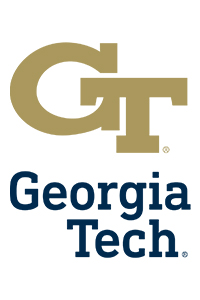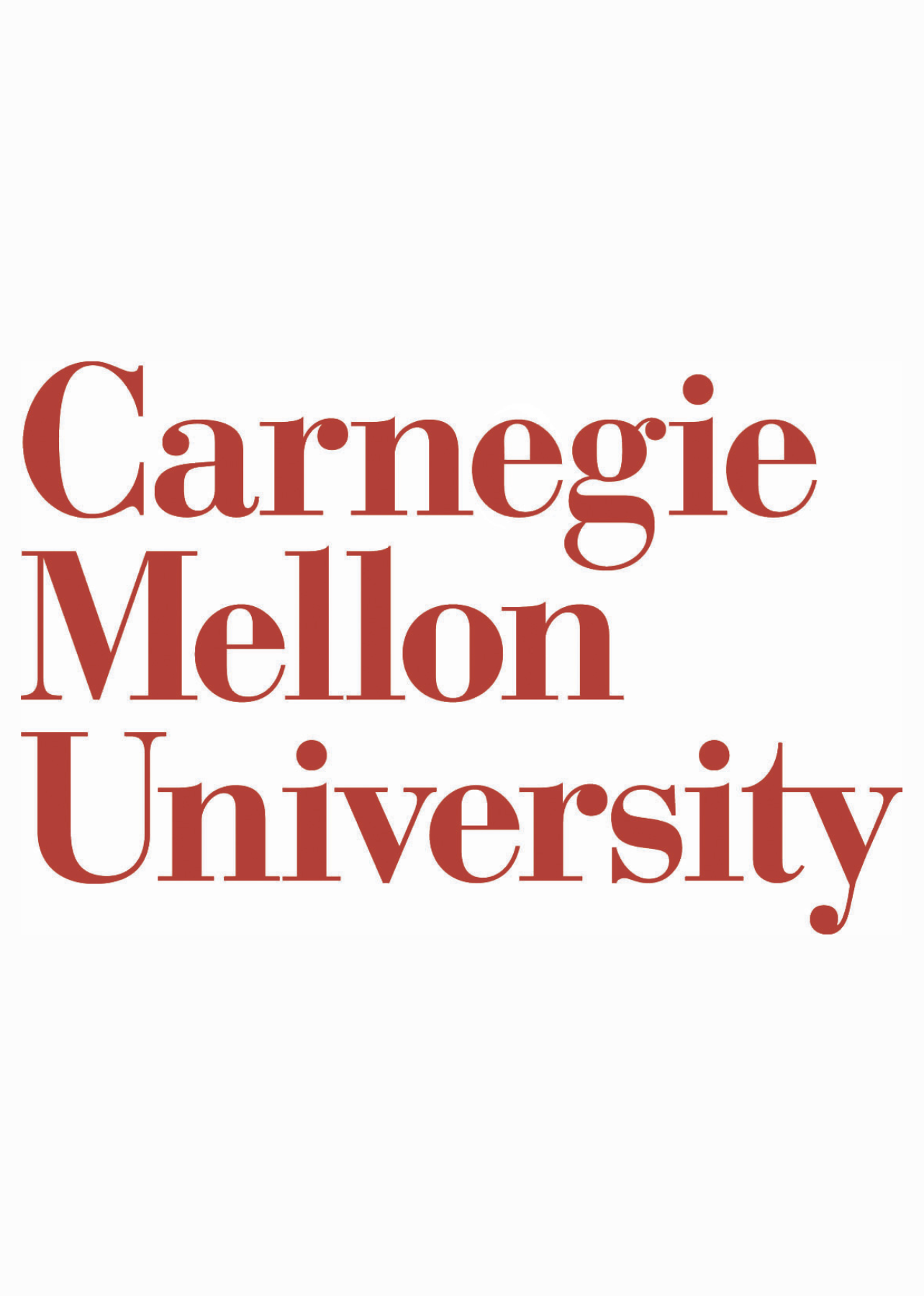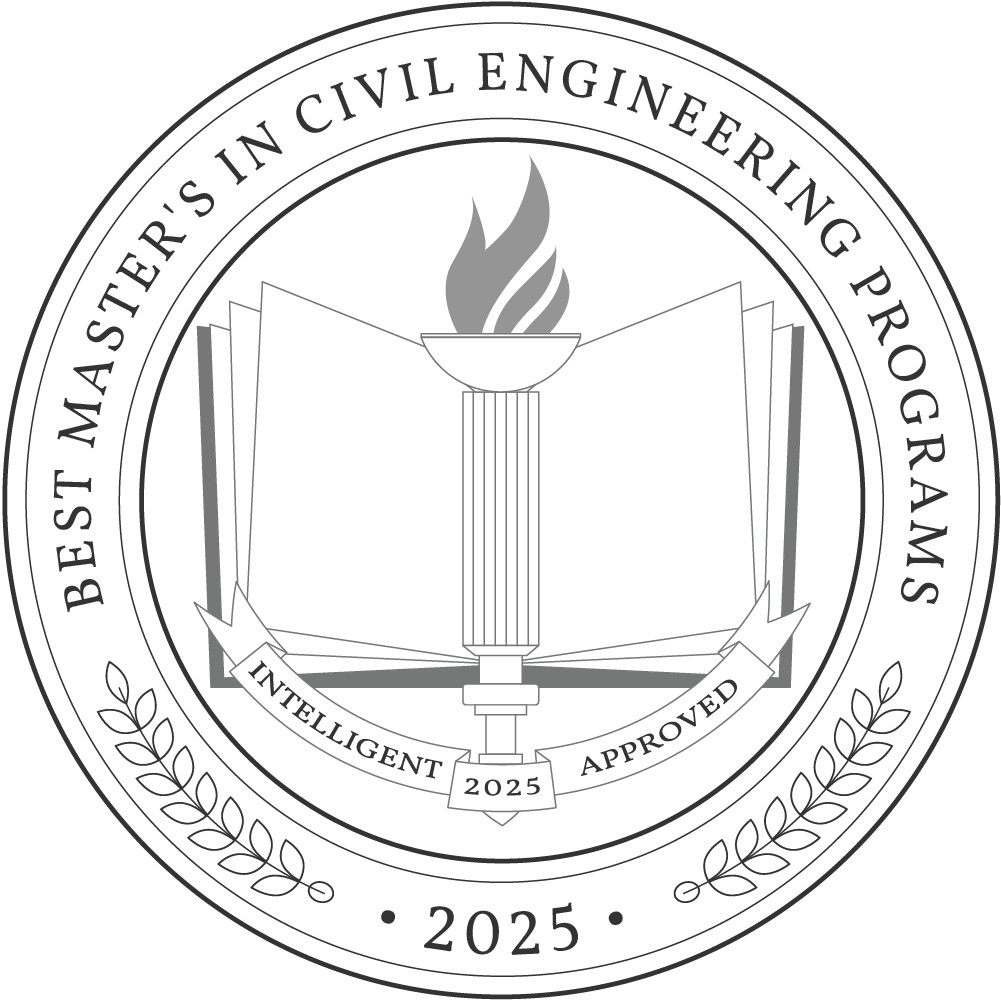Civil engineering master’s degree programs prepare students for advanced roles in the field of civil engineering, equipping them with specialized knowledge and skills to tackle complex engineering challenges. Graduates can pursue various career paths, including civil engineering manager, structural engineer, transportation engineer, or environmental engineer. According to the U.S. Bureau of Labor Statistics, civil engineers make a median salary of $89,940.
Typically, these programs take around 18 months to two years to complete for full-time students, while part-time options may extend the duration. The average cost of a master’s degree in civil engineering varies depending on factors such as institution, residency status, and program format, with tuition ranging from $12,000 to $30,000 per year, according to the National Center for Education Statistics.
Why Trust Us
The Intelligent.com Higher Education Team is dedicated to providing students with independent, equitable school and program rankings and well-researched resources. Our expert-driven articles cover topics related to online colleges and programs, paying for school, and career outlooks. We use data from the U.S. Department of Education’s College Scorecard, the National Center for Education Statistics, and other reputable educational and professional organizations. Our academic advisory team reviews content and verifies accuracy throughout the year for the most current information. Partnerships do not influence rankings or editorial decisions.
- Analyzed over 2,000 national, accredited, and nonprofit colleges and universities
- 800+ rankings pages are reviewed and updated yearly
- Content is informed by reputable sources, surveys, and interviews with academic advisors and other experts
- Over 100 data points are reviewed for accuracy and quality throughout the year, including sources
How we rank schools
Our list features the best in Civil Engineering degree programs at top colleges nationwide. Each school featured is a nonprofit, accredited institution — either public or private — with a high standard of academic quality for post-secondary institutions.
We evaluated each school’s program on tuition costs, admission, retention and graduation rates, faculty, reputation, and the student resources provided for online students. We collected data from trusted sources like the National Center for Education Statistics, individual school and program websites, school admissions counselors, and other data sources. Then, we calculated the Intelligent Score on a scale of 0 to 100 based on the following criterion:
Academic Quality:
- Admission rate versus enrollment rate
- Retention rate of students who return after year one
- Accreditation status (regional and programmatic)
- Nonprofit status, both private and public institutions
Graduation Rate
- Overall graduation rate
- Total number of currently enrolled students, including diversity metrics
- Student-to-faculty ratio
Cost and ROI
- In-state and out-of-state per-credit tuition rates and fees
- Required credits to graduate
- Earning potential after graduation
- Availability of federal student loans, scholarships, and other financial aid options
Student Resources
- Available student services for online-only and hybrid programs
- On-campus amenities like tutoring centers and the number of libraries
Read more about our ranking methodology.
Best 34 Accredited Master’s in Civil Engineering Degree Programs
FiltersInstitution Type
Status
- Intelligent Score
- Alphabetically By University Name
- Acceptance Rate
- Enrollment
- In-state Graduate Tuition
- Out-of-state Graduate Tuition
- In-state Undergraduate Tuition
- Out-of-state Undergraduate Tuition

Stanford University
Intelligent Score: 99.53In-state: $55,473
Out-of-state: $55,473
In-state: $54,315
Out-of-state: $54,315
SAT: 1420-1570
ACT: 31-35
$1,391
On-Campus
Western Association of Schools and Colleges Senior College and University Commission
30

University of California, Berkeley
Intelligent Score: 98.14In-state: $11,442
Out-of-state: $41,196
In-state: $11,442
Out-of-state: $11,442
SAT: 1310-1530
ACT: 30-35
Resident: $511
Non-Resident: $1,021
On-Campus
Western Association of Schools and Colleges Senior College and University Commission
24

Columbia University in the City of New York
Intelligent Score: 97.44In-state: $57,864
Out-of-state: $57,864
In-state: $49,024
Out-of-state: $49,024
SAT: 1460-1570
ACT: 33-35
$2,462
On-Campus
Middle States Commission on Higher Education
30

Georgia Institute of Technology
Intelligent Score: 97.10In-state: $28,106
Out-of-state: $49,218
In-state: $27,898
Out-of-state: $27,898
SAT: 1370-1530
ACT: 31-35
Resident: $586
Non-Resident: $1,215
On-Campus
Southern Association of Colleges and Schools Commission on Colleges
30

Massachusetts Institute of Technology
Intelligent Score: 96.84In-state: $53,450
Out-of-state: $53,450
In-state: $53,450
Out-of-state: $53,450
SAT: 1510-1580
ACT: 34-36
$670
On-Campus
Southern Association of Colleges and Schools Commission on Colleges
66

University of Illinois Urbana-Champaign
Intelligent Score: 94.62In-state: $14,317
Out-of-state: $33,824
In-state: $15,016
Out-of-state: $15,016
SAT: 1200-1460
ACT: 27-33
Resident: $187 - $210
Non-Resident: $354 - $399
On-Campus, Online
Higher Learning Commission
32-36

Carnegie Mellon University
Intelligent Score: 94.00In-state: $57,560
Out-of-state: $57,560
In-state: $46,441
Out-of-state: $46,441
SAT: 1460-1560
ACT: 33-35
$897
On-Campus
Middle States Commission on Higher Education
96

Cornell University
Intelligent Score: 92.11In-state: $58,586
Out-of-state: $58,586
In-state: $29,500
Out-of-state: $29,500
SAT: 1400-1540
ACT: 32-35
$983
On-Campus
Middle States Commission on Higher Education
30

University of Washington
Intelligent Score: 91.56In-state: $10,629
Out-of-state: $37,998
In-state: $16,278
Out-of-state: $16,278
SAT: 1200-1453
ACT: 27-33
$748
On-Campus, Online, Hybrid
Northwest Commission on Colleges and Universities
42

Purdue University
Intelligent Score: 90.19In-state: $9,208
Out-of-state: $28,010
In-state: $9,208
Out-of-state: $9,208
SAT: 1170-1420
ACT: 25-33
Resident: $695
Non-Resident: $1,870
On-Campus, Online
Higher Learning Commission
30

The University of Virginia
Intelligent Score: 88.17In-state: $15,772
Out-of-state: $49,819
In-state: $17,076
Out-of-state: $17,076
SAT: 1320-1510
ACT: 30-34
Resident: $1,103
Non-Resident: $1,878
On-Campus
Southern Association of Colleges and Schools Commission on Colleges
30

Virginia Tech
Intelligent Score: 87.16In-state: $32,274
Out-of-state: $36,090
In-state: $44,444
Out-of-state: $44,444
SAT: 1210-1410
ACT: 26-32
In-State: $846
Out-of-State: $1,705
On-Campus
Southern Association of Colleges and Schools Commission on Colleges
72

University of Michigan
Intelligent Score: 86.55In-state: $16,520
Out-of-state: $53,669
In-state: $24,344
Out-of-state: $24,344
SAT: 1340-1520
ACT: 31-34
In-State: $2,117
Out-of-State: $3,628
On-Campus
Higher Learning Commission
30

The University of Texas at Austin
Intelligent Score: 86.29In-state: $11,448
Out-of-state: $40,032
In-state: $12,028
Out-of-state: $12,028
SAT: 1210-1470
ACT: 26-33
Resident: $1,429
Non-Resident: $2,034
On-Campus
Southern Association of Colleges and Schools Commission on Colleges
30

University of Southern California
Intelligent Score: 85.61In-state: $59,260
Out-of-state: $59,260
In-state: $47,880
Out-of-state: $47,880
SAT: 1340-1530
ACT: 30-34
$2,424
On-Campus, Online
Western Association of Schools and Colleges Senior College and University Commission
28

Northwestern University
Intelligent Score: 84.96In-state: $58,227
Out-of-state: $58,227
In-state: $56,067
Out-of-state: $56,067
SAT: 1430-1550
ACT: 33-35
$1,917
On-Campus
Higher Learning Commission
36

University of California - Los Angeles
Intelligent Score: 81.98In-state: $11,442
Out-of-state: $41,196
In-state: $11,442
Out-of-state: $11,442
SAT: 1310-1530
ACT: 30-35
In-State: $1,007
Out-of-State: $1,846
On-Campus
Western Association of Schools and Colleges Senior College and University Commission
36

University of California - Davis
Intelligent Score: 81.97In-state: $11,442
Out-of-state: $41,196
In-state: $11,442
Out-of-state: $11,442
SAT: 1310-1530
ACT: 30-35
Resident: $361 - $908
Non-Resident: $805 - $2,027
On-Campus
Western Association of Schools and Colleges Senior College and University Commission
27-34
How to Choose a Master’s in Civil Engineering Program
Choose your area of study
Selecting the right area of study within civil engineering is crucial as it determines the focus of your graduate studies and future career path. Whether it’s structural, transportation, environmental, or geotechnical engineering, identifying your interests and strengths will guide your coursework and research projects. This decision influences the types of courses you’ll take and the opportunities available for internships and specialization.
Research schools and programs
Thoroughly researching schools and programs ensures you find the best fit for your academic and professional goals. Look into faculty expertise, research opportunities, accreditation status, and alumni outcomes. To become licensed as a civil engineer, individuals must have graduated from a program accredited by ABET, the Accreditation Board for Engineering and Technology. Consider factors such as program reputation, location, class sizes, and available resources like laboratories and libraries. Alumni placement numbers can show how well graduates are equipped for the workforce. Reviewing admission requirements and deadlines for each program is also essential to prepare a strong application.
Prepare for tests and applications
Preparation is key when applying to a master’s program. Start early to gather required materials such as transcripts, letters of recommendation, and standardized test scores (e.g., GRE). If necessary, consider working with a tutor or mentor to improve your test-taking abilities. Craft a compelling personal statement that highlights your academic achievements, research interests, and career aspirations. Familiarize yourself with each program’s application process and ensure all materials are submitted accurately and on time.
Select your program
After thorough research and preparation, carefully evaluate your options and choose the program that best aligns with your goals and preferences. Consider factors like program curriculum, faculty expertise, available resources, and opportunities for hands-on experience. Determine whether you would rather enroll in an in-person or online program or one that is a hybrid of both. Evaluate the program’s reputation, accreditation status, and job placement rates to ensure a quality education and strong career prospects upon graduation.
Determine how you’ll pay for your degree
Financing your master’s degree requires careful planning and consideration of various funding options. Begin by filling out the Free Application for Federal Student Aid. Explore federal student aid programs and consider taking out student loans if necessary. Research the scholarships, grants and assistantship opportunities offered by the school, government agencies, and private organizations. Also, evaluate your personal finances, including savings and potential employer tuition reimbursement benefits. Creating a budget and exploring cost-saving strategies can help minimize the financial burden of pursuing a graduate degree.
What Can You Expect From a Master’s in Civil Engineering Program?
A master’s in civil engineering program offers students an in-depth understanding of advanced concepts and practices in the field. Depending on the program’s focus, students can expect to learn advanced principles in structural engineering, transportation engineering, geotechnical engineering, environmental engineering, or construction management. The curriculum typically covers topics such as structural analysis and design, transportation planning and design, soil mechanics, water resources engineering, and sustainable infrastructure development.
The duration of a master’s in civil engineering program usually ranges from 1.5 to 2 years for full-time students, although part-time options may be available for those balancing work or other commitments. Some programs may require the completion of a thesis or capstone project, while others offer non-thesis tracks with additional coursework or comprehensive exams.
Prospective students should be aware of any additional requirements, such as in-person labs, residencies, or internships, which provide hands-on experience and practical skills essential for success in the field. Additionally, students may have opportunities to collaborate with industry partners on real-world projects, engage in research with faculty members, and participate in professional development activities such as conferences and workshops.
Potential courses you’ll take in a master’s in civil engineering program
- Structural Analysis and Design. This course covers advanced techniques for analyzing and designing structures such as buildings, bridges, and dams. Topics include structural modeling, load analysis, material behavior, and design codes and standards. Students learn to apply engineering principles to design safe and efficient structures that withstand various loading conditions.
- Transportation Engineering. This course focuses on the planning, design, and operation of transportation systems, including highways, railways, and airports. Students learn about traffic flow theory, transportation planning, and traffic safety. The course may emphasize sustainable transportation practices and the integration of emerging technologies in transportation systems.
- Geotechnical Engineering. The course deals with the behavior of earth materials and their interaction with structures. Topics include soil mechanics, foundation engineering, slope stability analysis, and ground improvement techniques. Students learn to assess soil properties, analyze foundation systems, and mitigate geotechnical hazards to ensure the stability and durability of civil engineering projects.
- Environmental Engineering. This course explores the principles of environmental engineering and their application to the design and management of water and wastewater treatment systems. Topics may include water quality analysis, water and wastewater treatment processes, solid waste management, and environmental regulations. Students learn to address environmental challenges such as pollution control, resource conservation, and sustainable development.
- Construction Management. This course covers project management principles and practices specific to the construction industry. Topics include project planning, scheduling, budgeting, risk management, and contract administration. Students learn to oversee construction projects from inception to completion, ensuring that projects are delivered on time, within budget, and according to quality standards.
Master’s in Civil Engineering Degree Frequently Asked Questions
How do I apply to a master's in civil engineering degree program?
To apply for a master’s degree in civil engineering, prospective students typically need to submit an application form along with their undergraduate transcripts, letters of recommendation, a statement of purpose outlining their academic and career goals, and standardized test scores such as the GRE. Some programs may require additional materials such as a resume, writing samples, or a portfolio of past work. It’s essential to review the specific admission requirements of each program and ensure all materials are submitted accurately and on time. Speaking with an admissions counselor can provide valuable insights into the application process, program curriculum, and any additional requirements or opportunities available to applicants.
How much does a master's in civil engineering degree cost?
The cost of a master’s degree in civil engineering varies depending on factors such as institution, residency status, and program format. On average, tuition for in-state students at public universities ranges from $12,000 to $25,000 per year, while out-of-state students and those attending private universities may pay upwards of $30,000 to $50,000 annually. Additional costs include textbooks, materials, and student fees, which can amount to several thousand dollars per year.
How long does it take to earn a master's in civil engineering degree?
Earning a master’s degree in civil engineering typically takes about 18 months to two years for full-time students, with the program consisting of 30 to 45 credits. Part-time enrollment may extend the duration to three to four years, depending on the number of credits taken per semester. Online programs often offer flexibility, allowing students to pace their studies according to personal commitments. Some programs may require a thesis or capstone project, which can affect completion timelines.

